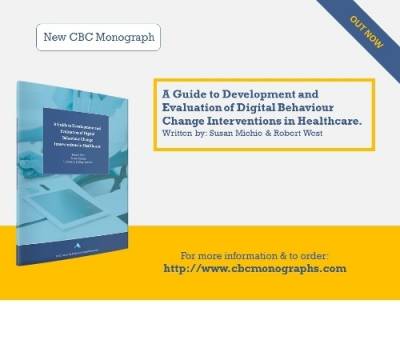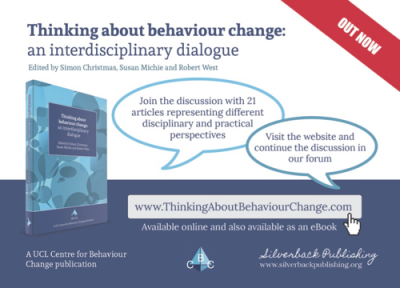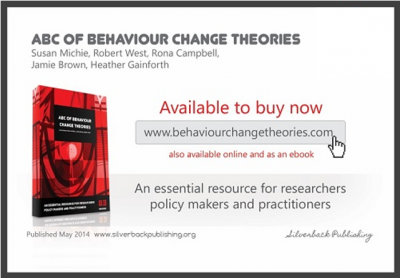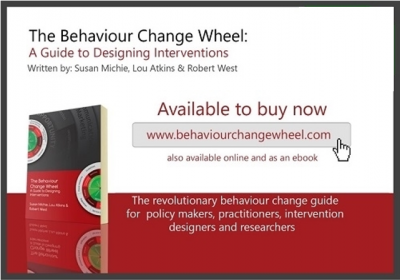A postgraduate degree in behaviour change drawing on multidisciplinary scholarship and its application. This innovative programme is centred around the systematic application of behaviour change theory and methods to design, implement and evaluate interventions. This approach equips students to work in this emerging and exciting field to address social, health and environmental challenges.
Key information
Programme starts
September 2021
Modes and duration
Application dates
Tuition fees (2021/22)
Note on fees:
The tuition fees shown are for the year indicated above. Fees for subsequent years may increase or otherwise vary. Further information on fee status, fee increases and the fee schedule can be viewed on the UCL Students website: ucl.ac.uk/students/fees.
Entry requirements
For the MSc, a minimum of an upper second-class UK Bachelor's degree in a behavioural or social science (for example, psychology, sociology, anthropology, social geography) or an overseas qualification of an equivalent standard and relevant quantitative or qualitative research experience. Practical experience with a behaviour change focus (through paid or voluntary work) is also beneficial. Normally the first degree also includes quantitative expertise - statistics or mathematics - because of the statistical components of the programme. For the PG Diploma or Certificate, a minimum of an upper second-class UK Bachelor's degree or an overseas qualification of an equivalent standard in any academic discipline and relevant research and/or practical experience (e.g. paid or voluntary) with a behaviour change focus are required.
English language requirements
If your education has not been conducted in the English language, you will be expected to demonstrate evidence of an adequate level of English proficiency.
The English language level for this programme is: Good
UCL Pre-Master's and Pre-sessional English courses are for international students who are aiming to study for a postgraduate degree at UCL. The courses will develop your academic English and academic skills required to succeed at postgraduate level. International Preparation Courses
Further information can be found on our English language requirements page.
International students
Country-specific information, including details of when UCL representatives are visiting your part of the world, can be obtained from the International Students website.
International applicants can find out the equivalent qualification for their country by selecting from the list below.
Select your country:
About this degree
This MSc programme:
- equips students with the ability to critically appraise theories, methods and evidence for understanding behaviour and behaviour change in a range of contexts.
- trains students in the design, implementation and evaluation of behaviour change interventions.
- enables students to support the translation of evidence into practice across disciplines and sectors.
MSc students undertake modules to the value of 180 credits.
The MSc programme consists of four core modules (75 credits), three elective modules (45 credits) and a research-based dissertation (60 credits).
A Postgraduate Diploma, which consists of four core modules (75 credits) and three electives (45 credits), is also offered.
A Postgraduate Certificate, which consists of three core modules (60 credits), is also available.
Upon successful completion of 180 credits, you will be awarded a MSc in Behaviour Change. Upon successful completion of 120 credits, you will be awarded a PG Dip in Behaviour Change. Upon successful completion of 60 credits, you will be awarded a PG Cert in Behaviour Change.
Please note that the list of modules given here is indicative. This information is published a long time in advance of enrolment and module content and availability is subject to change.
Compulsory modules
- Changing Behaviour: Intervention Development and Evaluation (30 credits)
- Theories and Models of Behaviour Change (15 credits)
- Behaviour Change: An Interdisciplinary Approach (15 credits)
- Research Methods and Evidence for Global Health (15 credits) *
- Research Project (60 credits) **
* MSc and PG Diploma Only
** MSc Only
Elective modules
MSc and PG Diploma students choose three of the following:
- Health and Wellbeing (15 credits)
- Energy, People and Behaviour (15 credits) †
- Making Policy Work (15 credits) †
- Wellbeing in Buildings: Theory and Practice (15 credits) †
- Social Cognition: Affect and Motivation (15 credits) †
- Social Psychology of Risk (15 credits) †
- Public Ethics (15 credits) †
- Consumer Behaviour (15 credits) †
- Judgement and Decision Making (15 credits) †
- Human Factors and Digital Health (15 credits) †
- Persuasive Games (15 credits) †
- Introduction to System Dynamics Modelling in the Built Environment (15 credits)†
- Energy and Climate Policy (15 credits) †
- Evidence for Policy and Practice (15 credits) †
- Public Economics and Public Policy (15 credits) †
- Behavioural Economics and Game Theory for the Environment (15 credits) †
† these electives are subject to availabilitiy
Dissertation/research project
MSc students undertake an independent research project, culminating in a dissertation of 8,000 words. Projects may also be presented at a mini-conference.
Teaching and learning
The programme is delivered through lectures, seminars, small-group and project work and independent study. All tutors are highly experienced, internationally recognised researchers and/or practitioners in behaviour change from a range of disciplines, including: health, transport, built environment, digital technology, economics, policy and ethics. Assessment is through coursework, unseen examinations and research projects.
Additional costs
For more information on additional costs for prospective students please go to our estimated cost of essential expenditure at Accommodation and living costs.
Accessibility
Details of the accessibility of UCL buildings can be obtained from AccessAble accessable.co.uk. Further information can also be obtained from the UCL Student Support & Wellbeing team.
Funding
For a comprehensive list of the funding opportunities available at UCL, including funding relevant to your nationality, please visit the Scholarships and Funding website.
Careers
Students graduating from this programme will be equipped with a broad set of skills that can be applied to many different careers. Market research has shown there is a large demand for behaviour change expertise across the private, public and voluntary sectors and in roles relating to policy, practice and research.
Graduate careers benefiting from this degree include policy officers, behavioural science researchers and research managers, IT developers and user experience designers, urban and transport planners, health consultants and human resource managers. The range of modules available creates a unique opportunity for students to tailor their degree to their specific interests and career aspirations.
Employability
On completion of this degree, students will have acquired significant knowledge about behaviour change theories and techniques, skills in intervention design, implementation and evaluation and will have an advanced understanding and appreciation for effective interdisciplinary working.
Students will also have knowledge of a broad range of research methodologies and MSc students will have had the opportunity to apply these and their acquired knowledge to an original piece of research.
Why study this degree at UCL?
The programme draws on the world-renowned expertise of the UCL Centre for Behaviour Change (CBC), led by Professor Susan Michie, that fosters multidisciplinary knowledge exchange and translates expertise to those wishing to apply this knowledge and skills to their work and/or studies. The Centre engages leaders from a variety of key academic disciplines in a far-reaching programme of research, training, teaching, consultancy and events.
Students will have the opportunity to meet (e.g. at social seminars) and work with (e.g. for the research project component of the MSc) members of the CBC team who are leaders in research, policy and practice engaged in translating evidence to solve real-world problems.
Department: Division of Psychology & Language Sciences
Application and next steps
Applications
Students are advised to apply as early as possible due to competition for places. Those applying for scholarship funding (particularly overseas applicants) should take note of application deadlines.
This programme requires two references. Further information regarding references can be found in our How to apply section.
There is an application processing fee for this programme of £90 for online applications and £115 for paper applications. Further information can be found at: ucl.ac.uk/prospective-students/graduate/taught/application.
Who can apply?
We welcome international as well as UK/EU applicants from all backgrounds (e.g. researchers, practitioners, policymakers and recent graduates) who are interested in learning to apply behaviour change principles to a variety of issues (e.g. environment, digital technologies, successful ageing) and sectors (e.g. government, charities, public sector and commercial organisations).
Application deadlines
- All applicants
- 31 May 2021
For more information see our Applications page.
Apply nowWhat are we looking for?
When we assess your application we would like to learn:
- why you want to study Behaviour Change at graduate level
- why you want to study Behaviour Change at UCL
- what particularly attracts you to this programme
- how your academic and professional background meets the demands of this programme
- where you would like to go professionally with your degree
Together with essential academic requirements, the personal statement is your opportunity to illustrate whether your reasons for applying to this programme match what the programme will deliver.
UCL is regulated by the Office for Students.
Page last modified on 28 August 2021
 Close
Close






